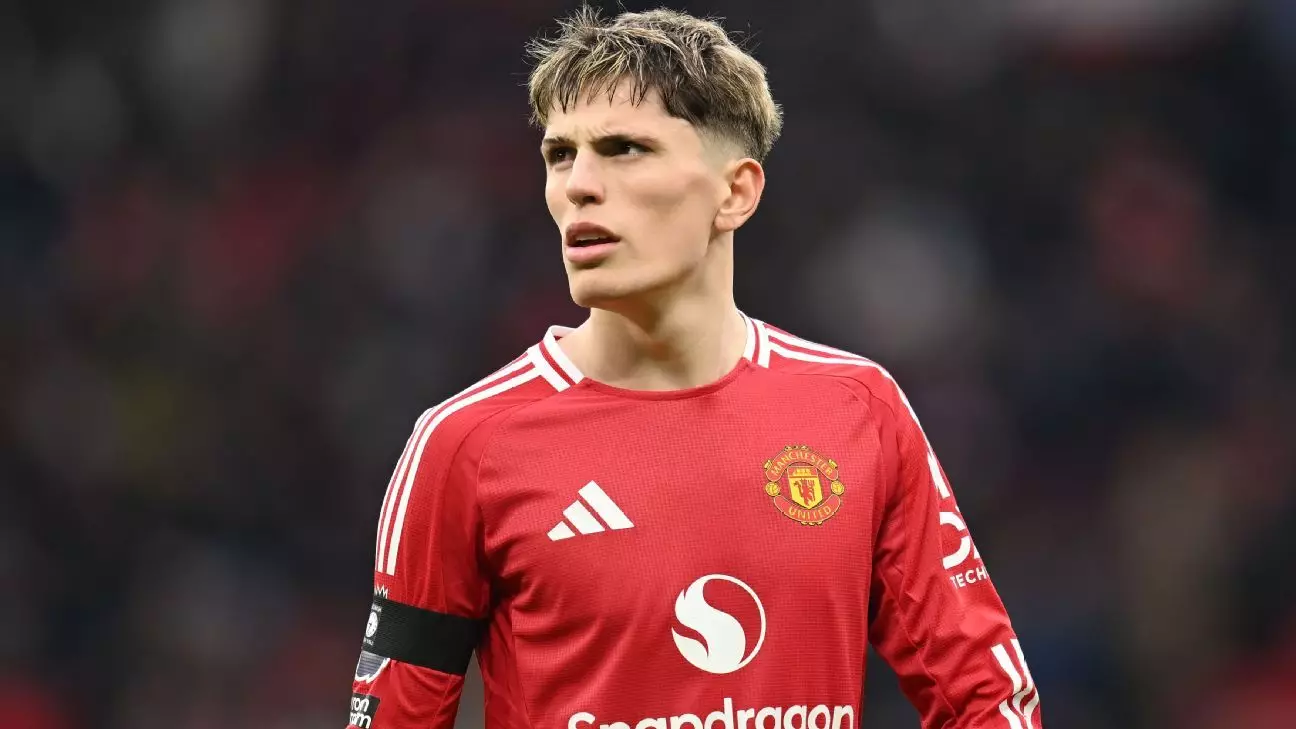As the January transfer window approached, Napoli’s sporting director Gioanni Manna faced the complex task of filling the void left by star winger Khvicha Kvaratskhelia, who recently departed for Paris Saint-Germain in a significant €60 million transfer. Among the potential reinforcements, Alejandro Garnacho of Manchester United emerged as a key target. However, Manna announced that Garnacho’s financial expectations proved too steep for Napoli’s current budgetary conditions, leaving the club in a precarious position as they sought to enhance their attacking line.
Manna indicated that Napoli had a genuine interest in Garnacho long before Kvaratskhelia’s exit was confirmed. The director expressed that they had prepared a substantial offer aligned closely with Manchester United’s expectations. Despite this groundwork, they stumbled at the final hurdle due to Garnacho’s demands, which seemed to reflect a desire for a salary that did not conform to the financial structure established within Napoli’s squad.
The dilemma facing Napoli underscores a broader issue present in many clubs: the delicate equilibrium of salary parity and team harmony. Manna articulately explained the complications of integrating a young player like Garnacho into a squad where established players receive average salaries. He argued that placing a new player on a significantly higher wage could adversely affect the morale of the current roster. This not only breeds discontent but may also invite friction among players, undermining overall team dynamics and cohesion.
This perspective reveals the strategic mindset of Manna and Napoli’s front office. They are not simply interested in bringing in talent; they aim to cultivate a sustainable team environment that rewards hard work and loyalty. By prioritizing wage equality, Napoli emphasizes the value of camaraderie over merely superfluous star signings.
In addition to Garnacho, Napoli also had their sights set on Borussia Dortmund’s Karim Adeyemi. However, that pursuit too fell flat, as the talented forward expressed hesitance to make the move to Naples. Manna disclosed that despite having a preliminary agreement in place, Adeyemi was not fully on board with the transfer. The director’s comments reflect not just the challenges of attracting top players but also the rigorous considerations that players must weigh when contemplating a transfer.
Adeyemi’s situation speaks to a larger narrative regarding player preferences and aspirations. The allure of the Premier League’s financial clout and competitive edge often overshadows opportunities in Serie A, a reality that clubs like Napoli must navigate deftly.
With the window closing and the need to bolster their squad, Napoli ultimately secured a loan signing in Switzerland’s Noah Okafor from AC Milan on deadline day. This move exemplifies their continued resilience and focus on integrating talent that aligns with their financial strategy as they strive to maintain their position atop Serie A.
Ultimately, Napoli’s transfer window experience reflects a balancing act between ambition and financial reality, revealing the intricacies of modern football in an ever-evolving landscape. As they move forward, lessons learned from this window will undoubtedly influence their strategies for future transfer endeavors.

